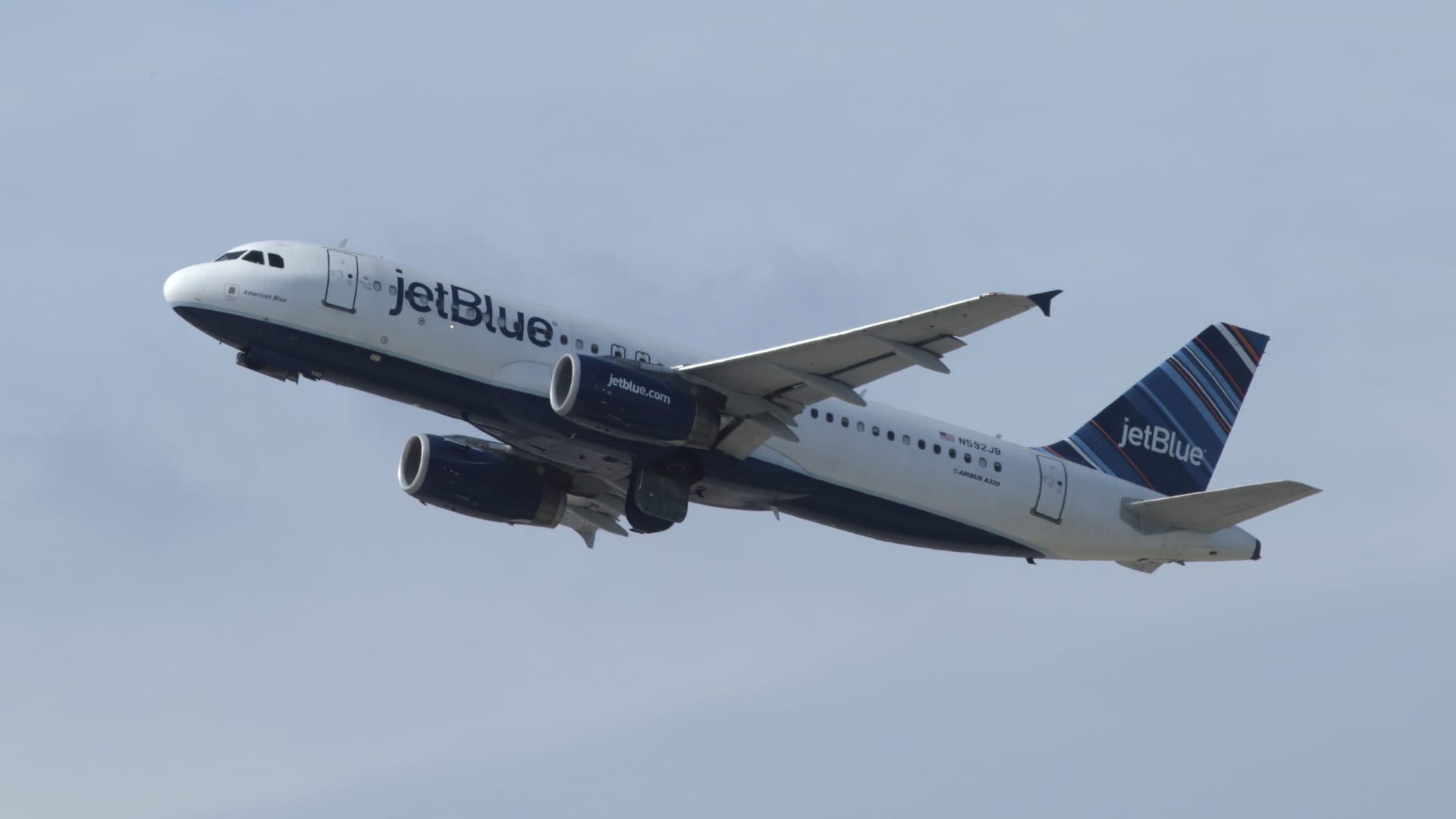
JetBlue Airways is offering flight attendants $1,000 bonuses if they don’t call out from work starting Friday through the end of May as the carrier tries to ensure adequate staffing during a surge in travel demand, according to a company message.
Flight attendants will also receive $100 bonuses for picking up open trips, said the message, which was shared with staff Friday and seen by CNBC. Part-time flight attendants would receive $500 for meeting attendance goals.
JetBlue’s latest incentive shows it is willing to pay crews extra to avoid potentially costlier flight disruptions as travelers return in droves after two years of the Covid pandemic.
Staffing shortages have hamstrung airlines over the past year, particularly during Covid peaks, such as widespread omicron cases that sidelined crews during the year-end holidays. JetBlue, United, American and others turned to bonuses or even triple pay to ease staffin shortages.
“The spring rewards programs comes at a time where every flight makes a difference as hours are tight and staffing levels are not where they need to be,” Ed Baklor, JetBlue’s head of customer care and programs, said in the memo.
Baklor last month urged flight attendants not to turn down assignments.
JetBlue didn’t immediately comment but COO Joanna Geraghty on Wednesday told CNBC that JetBlue will “continue to moderate capacity as needed” as the airline industry grapples with staffing shortages and high fuel prices.
The incentive program starts days after JetBlue made a surprise, $3.6 billion, all-cash offer to buy discount carrier Spirit Airlines, throwing Spirit’s $2.9 billion deal to combine with fellow ultralow-cost airline Frontier Airlines into question.
Spirit late Thursday said it would entertain JetBlue’s offer but said its merger agreement is still in place with Frontier.
JetBlue executives told investors this week that the deal would allow it to grow quickly and better compete against the four largest U.S. carriers: Delta, United, Southwest and American. Frontier said a JetBlue-Spirit tie-up would lead to higher fares for consumers.




